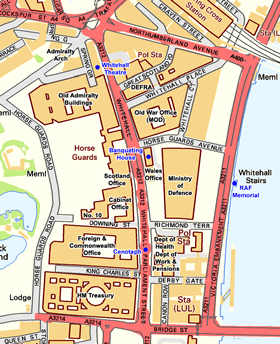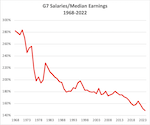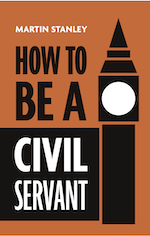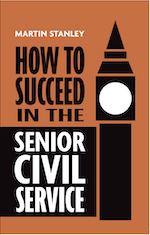 This website and its accompanying publications provide a thorough introduction to the duties, responsibilities and working practices of Whitehall officials. They also contain detailed information about civil service numbers, pay, pensions etc. as well as a detailed history of civil service reform and a great deal of advice for new recruits. Other sections focus on specific subjects such as Women Civil Servants, Special Advisers and Ministerial Directions.
This website and its accompanying publications provide a thorough introduction to the duties, responsibilities and working practices of Whitehall officials. They also contain detailed information about civil service numbers, pay, pensions etc. as well as a detailed history of civil service reform and a great deal of advice for new recruits. Other sections focus on specific subjects such as Women Civil Servants, Special Advisers and Ministerial Directions.
The most popular pages are listed below and there is a more detailed Contents page here. There is also a comprehensive online library. You might also find this search facility useful:-
POPULAR PAGES

What is a civil servant?
The UK Civil Service is much more narrowly defined than in most other countries. Only 1.6% of all employees (9% of public sector employees) are civil servants. So who are they? Follow this link to learn more.
These pages will help you understand the various grades and roles and their equivalents in the armed forces.

How many are there?
Too many! - according to most ministers. There has certainly been a large increase in numbers since the Brexit referendum. Follow this link to see the detail.
Can they be sacked?
Yes! More detail is here.

What are they paid?
A lot less than before, in real terms at least. Here's the detail.

What are policy officials' key skills and knowledge?
'How to be a Civil Servant: Westminster Explained' is a popular and inexpensive book written specially for new recruits and for those who want to understand the Whitehall/Westminster machine. More information is here.
How to Design a Successful Policy describes the building blocks that are typically found within the policy design process. It also discusses what happens when time and resources are limited.
What else could I read?
Special Advisers (see below) and civil servants have often written amusing and perceptive articles about real-world policy-making. I particularly recommend Giles Wilkes' Policy-Making 101, Iain Mansfield's Seven Public Policy Rules of Thumb, and this introduction to 'Mandarin'.
And there's lots more material elsewhere on this website. Its contents are listed here.

What are Private Offices and Private Secretaries?
These are the civil servants that provide close, 24/7 support for ministers. Here are some interesting stories.
What are Special Advisers and are they civil servants?
Spads, as they are usually known, are temporary civil servants who are appointed by Secretaries of State to provide political support. They are usually good to work with but can sometimes create serious problems for both officials and ministers. More information is here.
What about 'Civil Service Reform'?
The Civil Service works within 'the Westminster Model' designed over 100 years ago shortly after the First World War. Just about everyone who has experience of it, including most civil servants, think that reform is well overdue. But no-one has yet found a way to overcome the significant obstacles to reform, almost all of them external to the service itself. Follow this link for lots more information and analysis.

What is the Senior Civil Service - and what does it do?
The SCS contains the c.7,000 most senior civil servants. They are collectively responsible, with ministers, for the proper and effective government of the UK.
Unlike more junior officials, individual members of the SCS have a duty to address weaknesses in policy and practice. Nothing is "above their pay grade". They cannot claim that they are powerless to act, or that responsibility and accountability lies elsewhere. They may not simply shrug their shoulders when they see unfair, unethical or inefficient practices - inside and outside government. And they are not just empowered to 'speak truth to power'. They are under an absolute duty to do so.
This can come as quite a shock to those promoted into the SCS, whilst those entering the SCS from other careers encounter a bewildering mixture of rules and procedures - and political constraints.
Those who successfully manage the transition are inevitably helped by their more experienced colleagues who offer real world advice which cannot, by its nature, be included in ministerially-approved training. Colleagues and I have sought to summarise this advice and experience in How to be a Civil Servant (see also above) and in How to Succeed in the Senior Civil Service. The latter is free to read and its contents can be found here.

Interested in Current Civil Service Issues?
You might like to subscribe to my (free) Substack newsletter. The screenshot, below, gives you a feel for the sort of thing you might read.
I also post on Bluesky.
The latest Civil Service Reform and related news is here.

ABOUT, RESOURCES & CONTACT
The full Contents of this website are listed here.
Further information About this website, and Contact information, is here.
There is an extensive on-line reference library here. The same page also lists books written by civil servants describing their work.
If you need more detail then I strongly recommend that you investigate the data and reports published by the Institute for Government, including detailed statistics in its Whitehall Monitor series.
This link will enable you to subscribe to my occasional Substack newsletters. A link to my Bluesky feed is in the footer below.